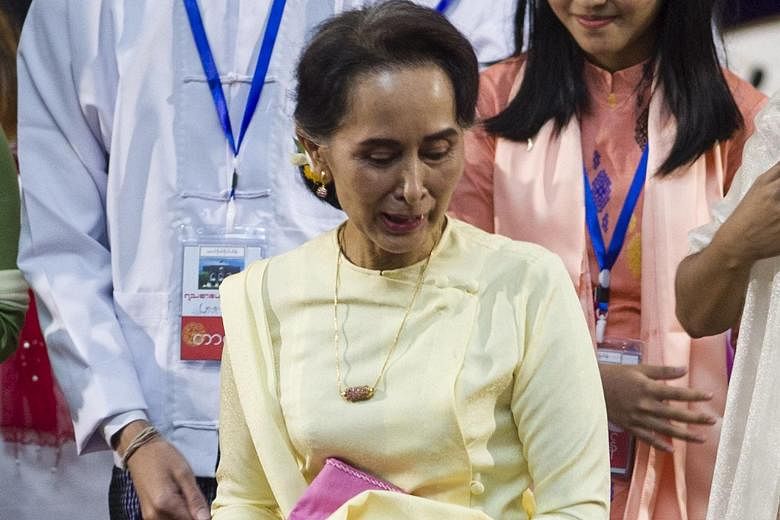YANGON - Since a brutal military crackdown caused over 700,000 Rohingya Muslims to flee Myanmar, the United States, European Union and Canada have imposed sanctions on military officers deemed responsible for the atrocities.
But none of these sanctions applied to Myanmar's commander-in-chief Min Aung Hlaing, now locked in an awkward embrace with the civilian government via a Constitution designed to retain the military's broad influence within an electoral democracy.
Already a subscriber? Log in
Read the full story and more at $9.90/month
Get exclusive reports and insights with more than 500 subscriber-only articles every month
ST One Digital
$9.90/month
No contract
ST app access on 1 mobile device
Unlock these benefits
All subscriber-only content on ST app and straitstimes.com
Easy access any time via ST app on 1 mobile device
E-paper with 2-week archive so you won't miss out on content that matters to you


